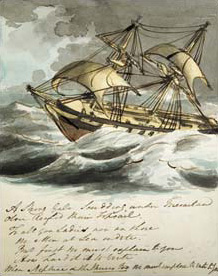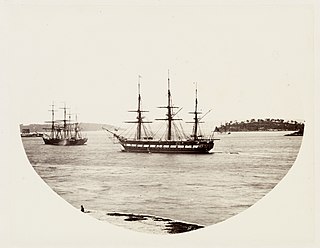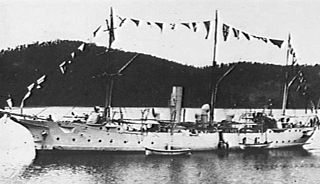HMS Clio can refer to any of three Royal Navy ships named after the Greek muse of history:

The Royal Navy (RN) is the United Kingdom's naval warfare force. Although warships were used by the English kings from the early medieval period, the first major maritime engagements were fought in the Hundred Years War against the Kingdom of France. The modern Royal Navy traces its origins to the early 16th century; the oldest of the UK's armed services, it is known as the Senior Service.

In Greek mythology, Clio, also spelled Kleio, is the muse of history, or in a few mythological accounts, the muse of lyre playing.
- HMS Clio (1807) was a Cruizer-class brig-sloop launched in 1807 and broken up in 1845.
- HMS Clio (1858) was a wooden screw corvette launched in 1858 and sold in 1920.
- HMS Clio (1903) was a Cadmus-class sloop launched in 1903 and sold in 1920.

HMS Clio was Cruizer-class brig-sloop of the Royal Navy, launched at James Betts' shipyard in Mistleythorn in Essex on 10 January 1807. Her establishment was 71 officers and men, 24 boys and 20 marines. She served in the Baltic during the Napoleonic Wars, accomplished the re-establishment of British rule on the Falkland Islands in 1833, and participated in the First Opium War. She was broken up in 1845.

The Cruizer class was an 18-gun class of brig-sloops of the Royal Navy. Brig-sloops were the same as ship-sloops except for their rigging. A ship-sloop was rigged with three masts whereas a brig-sloop was rigged as a brig with only a fore mast and a main mast.

HMS Clio was a wooden 22-gun Pearl-class corvette, built at Sheerness Dockyard and launched on 28 August 1858. She was the flagship of the Australia Station between 3 September 1870 and 16 October 1873, and from 1876 was used as a school ship.


